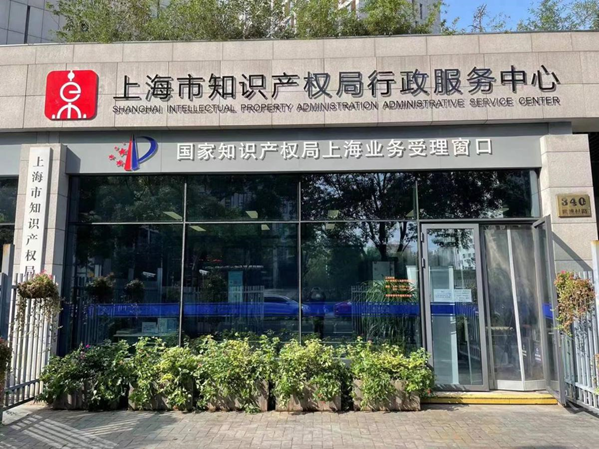By Lin Shujuan in Shanghai | chinadaily.com.cn |

The Shanghai Intellectual Property Administration Administrative Service Center provides one-stop service offering comprehensive IPR services across 51 categories. [Photo provided to chinadaily.com.cn]
The protection of intellectual property rights has become a pivotal issue within the pharmaceutical sector in recent years, with Shanghai taking notable strides in safeguarding these rights. On June 19, the Shanghai Intellectual Property Administration revealed significant advancements in its endeavors to protect intellectual property within pharmaceutical enterprises.
During a news briefing, Yu Chen, deputy director of the Shanghai Intellectual Property Administration, emphasized the administration's commitment to ensuring equal protection for the intellectual property rights of both foreign and domestic companies.
"We are continuously strengthening the legal framework for intellectual property protection, cracking down on violations, and safeguarding the legitimate rights of foreign-invested enterprises," Yu said.
According to Yu, since 2021, the administration has implemented an annual IPR protection plan, prioritizing administrative protection for patents and trademarks of foreign enterprises. The administration has streamlined its services through a one-stop service window, offering comprehensive IPR services across 51 categories and facilitating over 151,000 applications in 2023. The administration's focus on online services has further enabled companies to manage their IPR affairs efficiently with online guidance available.
Moreover, Shanghai has forged partnerships with the World Intellectual Property Organization (WIPO), co-hosting the Shanghai International Intellectual Property Forum and establishing the Shanghai International College of Intellectual Property. Additionally, the WIPO's Shanghai Center for Arbitration and Mediation provides an impartial forum for dispute resolutions, Yu added.
The administration has supported the conclusion of the first-ever national administrative ruling on a significant patent infringement dispute, initiated by Boehringer Ingelheim. Additionally, it has backed numerous renowned pharmaceutical companies, including Bayer, Roche Pharmaceuticals, and Takeda, in effectively resolving patent disputes through patent administrative rulings.
Liu Hongqiang, vice-president of Intellectual Property at Bayer China, said the company's anti-tumor drug Sorafenib (marketed as Nexavar) and anticoagulant drug Rivaroxaban (marketed as Xarelto) were subjects of administrative rights protection cases overseen by the Shanghai Intellectual Property Administration.
In the case of Nexavar, Bayer uncovered that a domestic company had exhibited the drug's active ingredient, Sorafenib, without authorization on its website and at trade shows. Similar instances of unauthorized displays of patented drugs to attract foreign clients had been observed, with Bayer's anticoagulant drug Rivaroxaban encountering comparable patent infringement challenges.
Following Bayer's patent infringement complaint in January 2019, the Shanghai Intellectual Property Administration ruled in favor of Bayer after four months, upholding all claims, confirming infringement, and mandating the defendant to cease infringing activities, remove website information, and destroy promotional materials.
China's implementation of a dual-track system, in which regional intellectual property administrations and the judiciary independently handle rights protection, has demonstrated its effectiveness in accelerating rights protection and boosting efficiency, Yu said.
Pharmaceutical patent protection in China commenced in 1993, granting patents for drugs under the Patent Law of the People's Republic of China (1992 Amendment). The country's domestic pharmaceutical patent protection system has since evolved, with recent measures such as drug patent term compensation and patent term adjustment introduced post the implementation of the Patent Law of the People's Republic of China (2020 Amendment) in June 2021.
Xu Feng, associate vice-president of AstraZeneca China and chief IP counsel for China and Asia, commended the progress in China's pharmaceutical intellectual property protection system, particularly noting the introduction of the drug patent term compensation system to address the unique challenges in the pharmaceutical industry.